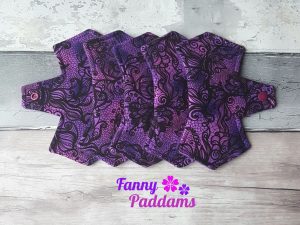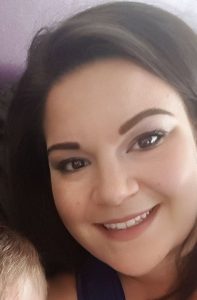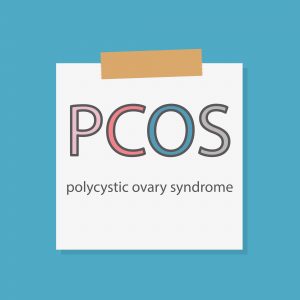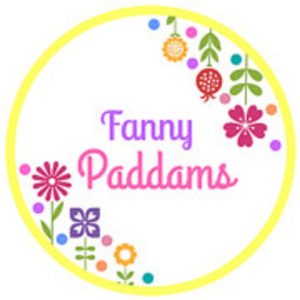A few years ago, I started working in earnest with a condition called lichen sclerosus, an autoimmune condition which affects the genital area. In the next few weeks I will be launching a new course for practitioners all about this condition.
In my deep-dive into figuring out how to treat this condition successfully, I came across information about the ingredients of the most commonly used products for the genital area; sanitary-wear.
If you actually look at the ingredients of most mainstream tampons and pads then trust me when I tell you, you wouldn’t want them anywhere near your vulva whether you have a skin condition or not! Not to mention the fact that the heavily perfumed nature of the 21st century tampon now feels to me like a patriarchal and misogynist issue.
Why do our vulvas while menstruating smell so bad that they need to be masked with perfume? Menstrual blood is totally odourless (unless there is a medical problem in which case this is nature’s way of telling you that your bits need to be given the once over by a doctor) and the very fact that perfume is present sends a really negative message to all the young women who aren’t consciously aware of this. My worry is that they subconsciously simply absorb the message that their genitalia must smell bad if during their menses they require their natural smell to be masked by a chemical perfume.
Long story short: I did a lot of market research, I bought a lot of pads, and I found the products made by Emma Cummins of Fanny Paddams to be superior in all ways. They’re fully customisable, come in different materials (all super-soft – a revelation that the scratchy/itchy, hard nature of pads is not necessary) and quite simply, they work really well. I pop them into a wash bag whilst I am bleeding, and when I’m done I shove them into a 30 degree wash, tumble dry them and put them away. I estimate that over the last few years I’ve saved hundreds of pounds by making this choice, not to mention giving my vulva a little treat each month!
 I asked Emma if I could interview her for my blog, and I took the opportunity to ask her all the questions I thought you, the reader, might like to know about. I should say that if you buy from her, there’s no incentive or kickback to me – I want you to know that if I recommend something it’s because I think it’s worth every penny and will change your life for the better.
I asked Emma if I could interview her for my blog, and I took the opportunity to ask her all the questions I thought you, the reader, might like to know about. I should say that if you buy from her, there’s no incentive or kickback to me – I want you to know that if I recommend something it’s because I think it’s worth every penny and will change your life for the better.
So, please meet the founder of the best named company ever: Fanny Paddams.
How did you get into making your own pads?
After being diagnosed with PCOS just over 10 years ago, I started to look into ways to alleviate my symptoms and I came across an article that discussed the chemicals found in disposable products. These chemicals were being absorbed through my skin each month and were interfering with my hormone levels. Needless to say, I was horrified and started to search for more natural alternatives which is when I came across reusable cloth pads. After using them for myself for around 5 years and discovering all of the amazing benefits, I wanted to encourage others to make the switch for their own health and for the environment which is when I created the much loved Fanny Paddams.
How did you come up with that fantastic name?
When I decided to set up my own business, I discussed my plans and ambitions with my sister. She has always had such a creative imagination and was really keen to get involved and help me make my dream a reality. We played about with different words for ages and she finally came up with “Fanny Paddams” which we both immediately loved.
 How do you recommend people choose what they need from your range?
How do you recommend people choose what they need from your range?
Everyone is different so everyone will have slightly different needs. Usually, when someone decides to make the switch over to reusable cloth pads, they will have previously used disposables. The average length of a disposable pad is between 9″ and 10″ so this is always a good place to start. If you find you need to wear the longer night time disposable pads, opt for a 12” or 14” reusable pad.
I usually recommend starting out with the Regular and/or Heavy absorbencies which will cover a variety of different flows.
For those, like myself, who suffer from PCOS or other Endocrine issues which result in a very heavy flow, I suggest opting for a longer length pad in my “Night” range which will offer the coverage and absorbency needed to cope with the flow.
The clients I have with conditions such as Endometriosis or Uterine Myoma who have heavy bleeding are often worried about using washable pads. What do you say to them and what do you recommend?
I completely understand the reservations many people do have before they try cloth for the first time, but you will not regret the decision to make the switch. Generally speaking, cloth pads tend to be much more absorbent than their disposable counterparts. In addition to this, it has also been widely reported that the lack of chemicals found in reusable cloth pads often makes your period shorter and/or lighter. This may mean that after a short while, you may not bleed as intensely as you once did, and this was certainly true for many of my customers who all wish they had made the switch sooner.
When I have a customer who does have Endometriosis, for example, I always recommend they start out with 12”-14” pads in a Heavy or Night absorbency. Once they have settled into using cloth, they are able adjust their stash accordingly.
 How do you recommend your pads are stored/cleaned/dried?
How do you recommend your pads are stored/cleaned/dried?
Cloth pads are super easy to care for and although there are a few different methods this is by far the easiest. After use, dry store your pads in a wet-bag (or similar) until you are ready to wash them. At the end of your cycle, pop all your beautiful pads into the washing machine on a cold rinse cycle. This will help to prevent any stains and remove the majority of menstrual blood. Once this has finished, you can add some stain remover if you wish, and then wash as normal with a small amount of detergent at 40 degrees. Fabric conditioner is not recommended. Pads can be air dried or tumble dried on a low heat.
What makes your products so amazing?
I am a huge advocate of cloth pads for many reasons and I have spent many years testing and perfecting my cores to achieve maximum absorbency levels. I use only the best core fabrics available (Zorb 3D and SHOBF) to ensure I offer the best product I can to each and every one of my customers.
All pads bought from Fanny Paddams are ethically handmade in the UK with a strong eco-friendly focus and as such all packaging is also plastic free.
If you’d like to make the switch, head over to www.fannypaddams.co.uk and use all the money you save to buy yourself something fabulous to go some way toward compensating for the experience of being (once again) in lockdown and separated from our loved ones and our normal lives. Here’s to a 2021 which starts with the inauguration of a new President of the USA and only goes globally uphill from there!
Tags: clothes, Endometriosis, fertility, lichen sclerosus, menstruation, Naava Carman, Naava recommends, periods, tips
